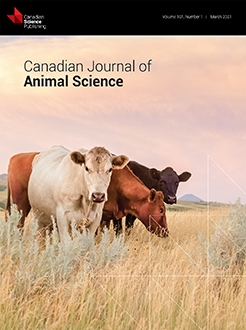This study was conducted to investigate the effects of increasing dietary net energy (NE) density manipulated by either dietary fat or fibre content on growth performance and energy intake in weaned pigs. A total of 60 barrows (8.40 ± 0.91 kg) were randomly allotted to one of five dietary treatments based on initial body weight. The experimental diets contained increasing NE densities (i.e., 9.9, 10.3, and 10.7 MJ NE kg−1) by manipulating either dietary fat or fibre content. Feeding the different dietary treatments did not affect growth performance among dietary treatments. The apparent total tract digestibility of dry matter, gross energy, fat, and neutral detergent fibre of the diets linearly increased (P < 0.05) for weeks 1–3 as dietary NE densities increased. Digestible energy (DE) and NE intake linearly increased (P < 0.01) with increasing dietary NE densities manipulated by dietary fibre content for weeks 2 and 3. A tendency (P = 0.06) for a linear increase in DE and NE intake was observed for weeks 2 and 3 when dietary NE densities were manipulated by fat content. In conclusion, weaned pigs were not able to adjust feed intake in response to dietary NE densities ranging from 9.9 to 10.7 MJ kg−1.
BioOne.org will be down briefly for maintenance on 14 May 2025 between 18:00-22:00 Pacific Time US. We apologize for any inconvenience.
How to translate text using browser tools
24 July 2020
Pigs weighing less than 20 kg are unable to adjust feed intake in response to dietary net energy density regardless of diet composition
Jong Woong Kim,
Bonjin Koo,
Charles Martin Nyachoti
ACCESS THE FULL ARTICLE
It is not available for individual sale.
This article is only available to subscribers.
It is not available for individual sale.
It is not available for individual sale.
digestibility
Energy intake
growth performance
net energy
weaned pig





